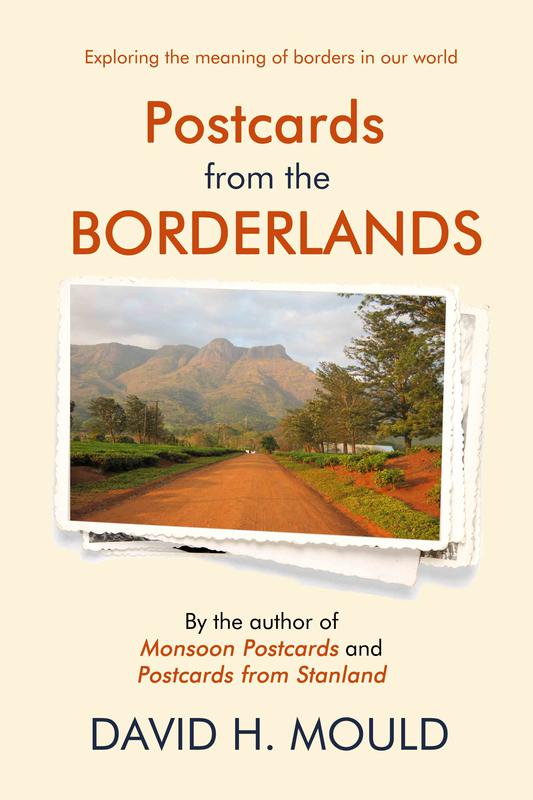©Moronic Ox Literary Journal - Escape Media Publishers / Open Books
Essay
SUBMISSIONS
Moronic Ox Literary and Cultural Journal - Escape Media Publishers / Open Books Advertise your book, CD, or cause in the 'Ox'
Novel Excerpts, Short Stories, Poetry, Multimedia, Current Affairs, Book Reviews, Photo Essays, Visual Arts Submissions
How Central Asia Changed My Life
David H. Mould
On Christmas Eve 1995, my wife, Stephanie, picked me up at Washington's Dulles airport. I had been traveling for almost two days and was exhausted. After almost a month in Osh, the second-largest city in Kyrgyzstan, I looked forward to returning to the United States. Instead I experienced, for the first time in my life, reverse culture shock.
We drove past brightly lit suburban malls, crowded with shoppers buying last-minute presents and stocking up on holiday food and alcohol. Billboards and neon signs were already advertising the post-holiday sales.
One of the blessings—but also one of the curses—of international air travel is that in the space of a few hours (or, in my case, about forty hours) you are transported from one world to another. The place you leave and the place where you arrive differ not only in the predictable ways—the skin color and features of the people, the landscape, architecture, language, food, and money. More fundamentally, the everyday concerns of people are usually completely different.
In the malls, people were making standard American consumer choices. "What should I buy for your mother? She's so difficult!" "Which video game do the children want?" "How large a turkey? "Will anyone notice if we serve boxed Chardonnay?"
It was a stark contrast to the world I had just left. Four years after the collapse of the Soviet Union, Kyrgyzstan was deep in an economic slump. Inflation was running at 300 per cent a year. Pensions and savings were almost worthless.
In suburban Maryland, the shops were open, and open late. In Osh, where I'd spent most of the past month, almost all the shops were closed, and had been closed for several years; what was left of the retail economy had moved to the bazaar and street corners.
In suburban Maryland, lights blazed from malls, street lamps, and Christmas house and lawn displays. In Osh, the lights were off for at least several hours each day. No one was sure why there were power outages in a country with enough hydroelectric capacity to be a net exporter, but the usual culprits were named—corrupt government ministers, incompetent local officials, the mafia, the International Monetary Fund, or some cabal of all of the above.
In suburban Maryland, the restaurants were crowded; in Osh, the few restaurants that were still open had only the occasional customer and most of the items on the menu were not available.
In suburban Maryland, people were spending their Christmas bonuses and maxing out their credit cards. In Osh, teachers, civil service workers, and others who had not been paid for months were wondering when (or if) they would ever get a paycheck again.
In suburban Maryland, people were buying gifts for the holidays. In Osh, some people were selling all they had to buy food; in subzero temperatures, they squatted on the broken concrete sidewalks, their possessions—kitchen utensils, auto parts, school textbooks, old clothes, Soviet memorabilia—spread out on blankets. I don't know who was buying because most passersby were just as poor as the sellers.
In suburban Maryland and throughout the United States, people were looking forward to the new year with hope. In Osh and throughout Central Asia, people were simply hoping that 1996 would not be as bad as 1995.
I had written e-mails about what I had seen to family and friends on the only computer I found with a dial-up connection. Each took almost 30 minutes and a lot of electronic whirring to send. I described the city and the struggles its people faced.
After years of media coverage of famine and conflict, the problems of the developing world can seem relentlessly wearying. Poverty, suffering, and conflict are comfortably encapsulated in five-paragraph or ninety-second narrative chunks, with the requisite quotes or sound bites. You could not understand southern Kyrgyzstan in 1995 from the occasional media coverage or even from my photos and stories. You simply had to be there.
I was there, and then I left. That was perhaps what disturbed me most. I had the freedom to travel, to move between the worlds of southern Kyrgyzstan and suburban Maryland. Most people in Central Asia were simply stuck, trying to survive. That Christmas Eve made me see my own world, career, and life in a new way.
My first experience working in a developing country made a deep impression. Over the next 20 years, I returned frequently to Central Asia—to Kyrgyzstan, Kazakhstan, Tajikistan, and Uzbekistan—for teaching and research. As I traveled and met people, I knew that what I was seeing, and learning would change, so I kept a journal and sent more e-mail letters home. There's big picture stuff—about politics and media—but mostly I wrote about the everyday challenges of living, shopping, travel, working, and trying to keep warm, about speaking bad Russian or figuring out how to pay a utility bill.
Postcards from Stanland: Journeys in Central Asia is available as a paperback and e-book from the Ohio University Press, Amazon and other online outlets.
Exploring the meaning of borders in our world. What are borders? Are they simply political and geographical, marked by posts, walls and fences, or should we think of them more broadly? Consider the borders within countries, determined by race, ethnicity, or caste. Borders may be physical and economic, and even perceptual—the borders of our minds. In Postcards from the Borderlands, historian and journalist David Mould rambles through a dozen countries in Asia, Southern Africa and Eastern Europe by car, bus, train, shared taxi and ferry, exploring what borders mean to their peoples. Mould finds topics of interest even in the most ordinary places—an airport departure lounge, a food court, a roadside restaurant, a government office. Every road trip offers a moving window display of landscape features, crops, livestock, houses, churches, temples, mosques, schools, factories, military bases, vehicles. He notes what people are selling on the roadside and the markets, the restaurant menu, the indecipherable instructions for the TV remote in his hotel room. What people wear. What they eat. How they talk to each other. The questions they ask him. The questions he asks them. Away from the tourist hotspots, he finds that it is often the commonplace that is most fascinating and revealing of culture.
Click Cover to Purchase



